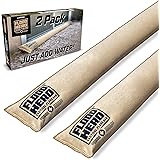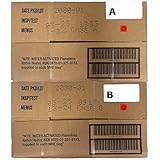Top 4 Semantic Keyword Phrases
- Urban self-reliance strategies
- Urban homesteading tips
- City self-sufficiency
- Self-reliant urban living
Table of Contents
- Urban self-reliance strategies
- Urban homesteading tips
- City self-sufficiency
- Self-reliant urban living
Urban self-reliance strategies
Adapting to Space Constraints
When I first moved to the city, one of the biggest challenges I faced was the limited space. However, I soon realized that by being a bit creative, I could make the most out of every square inch. For instance, vertical gardening became my best friend. By growing plants upward instead of outward, I could cultivate a variety of herbs and vegetables on my tiny balcony. Trust me, there’s nothing like homegrown tomatoes in the summer!
Another key strategy I adopted was multi-purpose furniture. By using pieces that serve dual functions, I maximized my living space. My coffee table doubles as storage, and my sofa turns into a bed. This not only saves space but also helps in maintaining a neat and organized home. It’s efficient and economical.
Lastly, sharing spaces has been a game-changer. Whether it’s a community kitchen or a shared garden, pooling resources with neighbors can drastically reduce individual burdens. It also builds a sense of community, which is something I cherish deeply in urban living. Plus, sharing tools and equipment means I don’t have to buy everything myself.
Learning New Skills
Self-reliance in the city also means acquiring new skills. When I started out, I took a keen interest in learning basic carpentry and plumbing. These skills have come in handy more times than I can count. Whether it’s fixing a leaky faucet or building a small bookshelf, being able to handle minor repairs myself gives a sense of empowerment.
Cooking from scratch is another invaluable skill. Urban life often tempts us with fast food and ready meals, but nothing beats a homemade dish. Learning to cook seasonal and local produce not only saves money but also ensures that you’re eating healthy. Plus, it provides an excellent opportunity to experiment with new recipes and flavors.
I also got into DIY projects. Making my own cleaning products and toiletries not only cuts costs but also reduces waste. From crafting soap to concocting eco-friendly cleaners, these small projects add up to make a significant difference. Plus, it’s fun and highly rewarding!
Energy Efficiency
Living self-reliantly in the city also means being smart about energy use. I started by making my apartment more energy-efficient. Insulating windows and doors, using energy-efficient appliances, and switching to LED lights are small steps that made a massive difference in my energy bills.
Another energy-saving strategy I embraced is using public transportation or biking instead of driving. Not only do I save money on gas, but it also reduces my carbon footprint. In a city with decent public transport, this is a no-brainer and helps keep me active.
== > What if ... Get a FREE Subscription to PREPARE
Also, investing in renewable energy has paid off. For instance, installing solar panels on the roof wasn’t just a sustainable choice but also an economic one. Though the initial investment was high, the long-term savings and environmental benefits make it worthwhile.
Urban homesteading tips
Gardening in Small Spaces
One of the first things I did when I decided to live more self-reliantly was to start a garden. Space is, of course, a limiting factor in the city, but vertical gardening made it feasible. By using trellises and hanging pots, I maximized my balcony space for growing fresh produce. It’s incredible how much you can grow in a small area with a little creativity.
Raised beds also work wonders for small urban gardens. They not only improve drainage and soil quality but also make gardening more manageable. I constructed a few raised beds out of reclaimed wood, providing me an excellent place to grow veggies and herbs.
Companion planting has also been a vital technique. By pairing plants that benefit each other, my small garden yields more produce and requires less maintenance. It’s fascinating how nature works, and leveraging those relationships makes urban gardening much more efficient.
Preserving and Storing Food
Another essential aspect of urban homesteading is food preservation. When you grow your own produce, there’s often more than you can eat fresh. Learning to can, pickle, and ferment has been invaluable. It’s an old-school skill that saves me money and ensures I have homegrown food available year-round.
Freezing is another great way to store surplus produce. By blanching vegetables before freezing, they retain their color and nutrients much better. My freezer is always stocked with a variety of fruits and veggies, ready to be turned into a quick meal.
Drying herbs is another simple preservation technique. I love having a stash of dried rosemary, thyme, and basil ready to use in my cooking. It’s much cheaper than buying dried herbs from the store, and the quality is far superior.
Resourceful Water Use
Managing water resources effectively is another key component of urban homesteading. I installed a rain barrel to collect water from my roof, which I then use to water my garden. It’s surprising how much water you can collect even in a small space. This helps reduce my dependency on city water and is great for the environment.
I also practice greywater recycling. By capturing water from showers, sinks, and washing machines, I can reuse it for irrigation. This not only cuts down on my water bills but also makes my household more sustainable.
Finally, utilizing water-efficient fixtures and appliances significantly reduces water consumption. From low-flow showerheads to dual-flush toilets, these small changes add up. They save water, lower bills, and make my home more self-reliant.
City self-sufficiency
Community Building
Urban self-sufficiency isn’t just about being self-reliant; it’s also about creating a supportive community. Over the years, I’ve learned the value of networking with like-minded individuals. Whether through local gardening clubs, community kitchens, or online forums, finding a tribe that shares your values can offer incredible support and resources.
Bartering is another effective way to foster community while enhancing self-sufficiency. Trading goods and services with neighbors not only saves money but also builds strong social bonds. For instance, I might trade some homegrown veggies for homemade bread or a sewing repair. It’s a win-win!
Participating in local farmers’ markets is another fantastic way to engage with the community. It not only gives me access to fresh, local produce but also supports local farmers and artisans. Plus, it’s a great way to network and share tips on self-sufficiency.
Zero Waste Living
Living a zero waste lifestyle is another significant aspect of city self-sufficiency. I started by minimizing single-use plastic in my home. Investing in reusable containers, shopping bags, and even produce bags has significantly reduced my plastic waste. It’s a small change that has a big impact.
Composting is another crucial practice. Even in a city setting, vermiculture or using a small compost bin can turn kitchen scraps into valuable compost for the garden. It reduces waste and provides nutrient-rich soil for growing more plants. It’s a beautiful cycle.
Lastly, I focus on buying in bulk. Many stores offer bulk-buying options for essentials like grains, beans, and other pantry staples. This not only cuts down on packaging waste but often proves to be more economical. Plus, it’s a great way to keep the pantry well-stocked without excessive waste.
Financial Independence
Achieving financial independence is a cornerstone of urban self-sufficiency. I started by tracking my expenses and creating a budget that reflects my values and goals. Cutting out unnecessary expenditures and focusing on savings was crucial in building a safety net.
Investing in skills and knowledge that can turn into side hustles or even full-time work gives a sense of security. For instance, I took up freelance writing and consultancy work. It’s flexible, and the extra income supports my self-sufficient lifestyle. Diversifying income streams is always a good idea.
Finally, avoiding debt and building an emergency fund provides peace of mind. By living within my means and saving for unexpected expenses, I ensure financial stability. It’s not always easy, but the long-term benefits of financial independence are worth the effort.
Self-reliant urban living
Sustainable Food Practices
Growing your food isn’t the only path to self-reliance in the city. Supporting local food initiatives, like community-supported agriculture (CSA), ensures you’re getting fresh produce while supporting local farmers. It’s a great way to know where your food comes from and to become part of a sustainable food network.
Cooking at home with seasonal ingredients helps ensure a sustainable food practice. By focusing on what’s in season, I cut down on transportation costs and environmental impacts associated with out-of-season produce. It’s also a delicious way to enjoy a variety of foods throughout the year.
Reducing food waste is another essential practice. Planning meals, using leftovers creatively, and proper storage techniques all contribute to a more sustainable food system. It’s rewarding to know nothing goes to waste, and it often leads to some culinary creativity!
DIY and Repairs
Another critical aspect of self-reliant urban living is getting comfortable with DIY and repairs. Instead of immediately replacing broken items, I take pride in fixing them. Whether it’s mending a piece of clothing or repairing a household appliance, these skills are invaluable. It saves money and reduces waste.
Thrift shopping and upcycling are great ways to find and create unique items. I often visit thrift stores to find treasures that can be repurposed or upcycled. It’s a sustainable way to furnish a home and express creativity. Plus, it’s like a treasure hunt!
Learning basic home maintenance skills can save significant costs. Simple things like patching up walls, fixing minor plumbing issues, and maintaining appliances are skills worth acquiring. Not only do they keep the home in good shape, but they also provide a sense of accomplishment and independence.
Health and Wellness
Maintaining health and wellness is vital for self-reliant urban living. For me, it starts with regular exercise. Urban parks and community fitness centers offer great opportunities for staying active. I make it a point to go for daily walks, jogs, or even practice yoga in the park. Fresh air and physical activity are essential for well-being.
Mental health is just as important as physical health. I practice mindfulness and meditation to stay grounded and reduce stress. It’s easy to get caught up in the hustle and bustle of city life, so taking a few minutes each day to breathe and center myself is crucial.
Lastly, cooking nutritious meals and staying hydrated are the foundation of good health. Eating a balanced diet composed of whole foods, plenty of fruits and vegetables, and staying hydrated keep me energized and ready to face the challenges of urban self-reliance.
FAQ
Q: Can you really grow enough food in an urban setting?
A: Absolutely! With techniques like vertical gardening, container gardening, and using community spaces, you can grow a surprising amount of food even in limited space.
Q: How can I start living a more self-reliant lifestyle?
A: Start small by learning new skills, such as cooking from scratch or basic repairs. Gradually incorporate practices like gardening, DIY projects, and minimizing waste into your daily routine.
Q: Is investing in renewable energy worth it?
A: Yes! While the initial costs can be high, the long-term savings and environmental benefits make renewable energy a smart choice. Plus, there are often grants and incentives available to offset initial expenses.
Q: How do I stay motivated to live a self-reliant lifestyle in the city?
A: Community support is key. Connect with like-minded individuals and groups, and celebrate your small successes. Remember, every little step towards self-reliance is an achievement!






